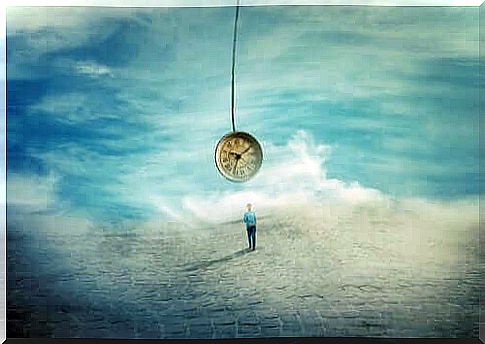Deferred Happiness: I’ll Be Happy When …

Delayed happiness defines a type of mental approach that many of us subscribe to. These are situations where you say to yourself that “ my life will be much better when I finally change jobs ”. “ I will allow myself these things that I love so much when the holidays arrive “. ” When I pass this exam, I will be with this person I miss so much “.
Why are we doing this? Why does our brain crave the idea that everything will be better when we do or get certain things? Moreover, what is the mechanism by which we force ourselves to delay well-being and pleasure by putting other dimensions in the foreground? Many would say that this is pure self-demand, others that all of these behaviors define a very effective way of self-sabotage.
To pause our happiness, to think that the future will bring us magical and perfect things is a form of fable. It is to overshadow our present while being blinded by the mirage of an ideal future.
“If I had more money, I would be happy” or, “ until I lose weight, I won’t go to the beach” erect invisible barriers where the true meaning is completely distorted of the word “happiness”.
We will explore this topic further below.

Delayed happiness, a miscalculation that causes us to lose our health
We live in this verbal time where part of our thoughts and desires are preceded by the word “if”. “ If I had more money, everything would be better”. “ If I got this promotion, I would have more status and I would show what I’m capable of ”. “Or if I were more attractive, I would find a partner “… Each of the sentences that we construct with this type of conjugation is a form of unnecessary suffering, where the roots of well-being have to be pulled out.
Psychology defines this reality as the syndrome of delayed happiness. This term explains a behavior in which the human being is always waiting for the appearance of a concrete circumstance. It is clear that sometimes this wait is justified, especially when one invests time and effort to get something concrete -> I now limit my social life in favor of studying because my goal is to pass an exam .
In the latter cases, the postponement of certain things has a reasonable explanation and end. However, delayed happiness syndrome occurs when the goal is neither reasonable nor logical. It is these arguments that go against oneself and where, moreover, they tend to fuel discomfort and suffering. An example of this is starting on Monday with the weekend in mind. Another could be those who think that everything will be better for them when they lose weight, when they have made some change in their physical appearance.
The one who procrastinates and postpones the fact because he does not accept or is not happy with the present moment, because he is not there and does not know how to take advantage of the potential of the here and now where his person, his wonderful being, is inscribed.
Why postpone our happiness?
Although the term happiness is very diffuse, it is very easy to define from a psychological point of view. It is accepting yourself, loving yourself, being good with yourself and with what you have. It’s having a life that has meaning. With a good network of social support and effective mental resources to cope with difficulties. No more no less.
However, delayed happiness actually hides a number of very concrete dimensions:
- It is a dissatisfaction with what we are and what we have. The person constantly longs for something that they lack, something that they consider to be better
- Behind this need to put happiness on the back burner, thinking that something better is going to come, there is fear. It is the fear of not facing what hurts right now, it is the insecurity of not daring to change what is wrong. All of this must be resolved here and now, with responsibility and courage.

Delayed happiness, chasing a carrot that can’t be reached
Clive Hamilton, professor of philosophy at Charles Sturt University in Australia, wrote a study called “ The Delayed Happiness Syndrome ” where he explains something very interesting. According to this professor, it is society itself that turns us into this kind of donkey chasing a carrot that is never enough.
We are always chasing something intangible that is seldom achieved, but to which we always aspire. And we long for it because we are not happy. The cause of this discomfort is work, it is the conditions in which we live, it is the consumer society that restlessly makes us believe that we need certain things to feel good (a better phone, a better clothes). ‘a certain make, a new car, etc.)
Another factor is how little time we have left to be and exist. In order to find ourselves with ourselves, with our hobbies, with the people we love… According to Dr. Hamilton, we should be a little more daring, dare to take new decisions to achieve well-being and lead a more compliant life to our tastes and needs. We have to stop running and think about tomorrow, stop and look for ourselves in the present …










